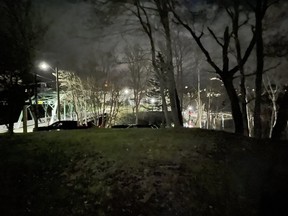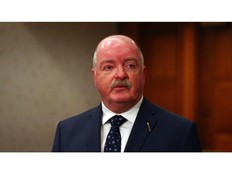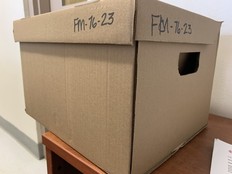Accused poachers 'cannot pretend to hide,' says province's top court
While some Indigenous harvesters say they have a treaty right to harvest eels, judges rule in favour of businesswoman out to stop them

Article content
New Brunswick’s highest court has shed light on an important decision it made in a lawsuit against alleged poachers accused of stealing baby eels.
The Court of Appeal delivered its reasons last week why it had ordered the province’s registrar of motor vehicles to turn over the names of 115 vehicle owners to Rothesay businesswoman Mary Ann Holland, the owner of Brunswick Aquaculture Limited and Alder Seafood Limited.
Her lawyer Barry Morrison argued in a filing last month that Holland and her staff had witnessed dozens of people illegally catching lucrative baby eels in river estuaries in the spring of 2023 after Ottawa had closed the fishery.
They recorded the licence plate numbers of their parked vehicles and demanded that the province tell them who owned them so that they could be sued. Holland says she has exclusive fishing rights for elvers, or baby eels, in that area.
The province’s registrar, Nicole Shorrock, refused to hand over the names, arguing in an affidavit it would violate people’s right to privacy. A lower court judge agreed in September of last year.
But the three-panel Court of Appeal unanimously decided that the judge had made errors in law and set the ruling aside on Feb. 8, saying it would provide reasons later.
Individuals engaged in poaching activities cannot pretend to hide behind the cloak of privacy to avoid being identified.
Charles LeBlond
Writing for the panel on March 28, Justice Charles LeBlond said it was not an unreasonable invasion of a third party’s privacy, given the circumstances. Holland, he said, had a right to get the information because she had done her utmost to identify the alleged poachers, most of whom were masked and hiding their identities.
“Individuals engaged in poaching activities cannot pretend to hide behind the cloak of privacy to avoid being identified,” the judge wrote, noting that the claims made by Holland were uncontested.
Holland accuses the senior leadership of the Wolastoqey First Nation of encouraging its members to poach the eels, also called elvers or glass eels, on several rivers in 2022 and 2023.
She’s also taken legal action against Ottawa for the way it has managed the lucrative fishery in the Maritimes, whose seasons have been shortened or cancelled in three of the last five years over concerns about poaching and violence on the water, including this year’s season.
Dwindling eel stocks around the world have pushed the price up to as much as $5,000 per kilogram, making elvers the most valuable seafood export by weight in Canada.
Ottawa has said it can’t allow the fishery to re-open until it puts in better measures to stop poaching. The Department of Fisheries and Oceans has issued several media releases over the last two months announcing arrests of alleged poachers and the confiscation of their gear and vehicles.
One such arrest last week in Shelburne County in southwest Nova Scotia led to protests. Two Mi’kmaq fishermen say they were forced to walk in socked feet for hours along a rural road in the middle of the night after they were arrested by federal fisheries officers who took their hip waders, boots and phones before releasing them.
During a press conference in Dartmouth, N.S., on Tuesday, Prime Minister Justin Trudeau said the news reports were “very troubling” and there needed to be a “full investigation.”
Blaise Sylliboy and Kevin Hartling told reporters in Nova Scotia they have a treaty right to fish the eels, no matter what Ottawa says, a view that’s also shared by some Indigenous harvesters in New Brunswick.
In an amended statement of claim filed March 7 at the Court of King’s Bench in Fredericton, Holland named more than 100 people whose vehicles she says were parked by rivers in the spring of 2023, netting without permission as the delicate eels pushed into the estuaries from the sea, part of a long, yearly migration.
The Wolastoqey Nation has rejected her claim outright and promises to vigorously defend itself against the allegations, which haven’t been tested in court.
“This new lawsuit is wholly without merit and a waste of public resources and the time of our leadership which should be focused on addressing the serious needs of our First Nations,” the chiefs said in a statement released last month. “Holland and her legal representative appear to be attempting to harass and intimidate the Wolastoqey leadership with these ridiculous and frivolous allegations.”












Postmedia is committed to maintaining a lively but civil forum for discussion. Please keep comments relevant and respectful. Comments may take up to an hour to appear on the site. You will receive an email if there is a reply to your comment, an update to a thread you follow or if a user you follow comments. Visit our Community Guidelines for more information.